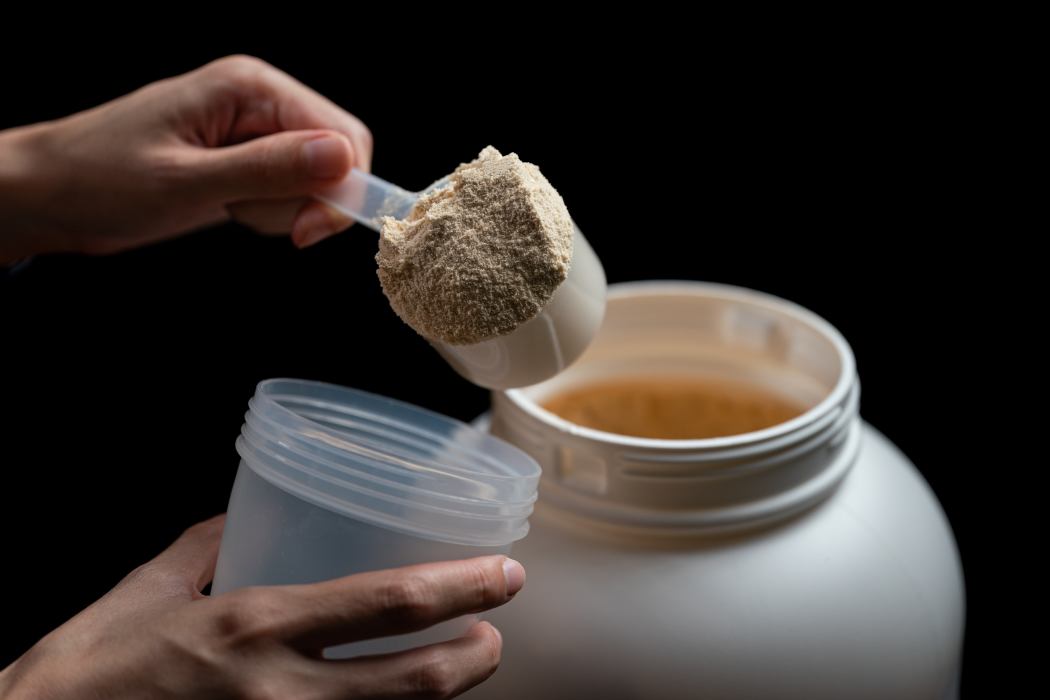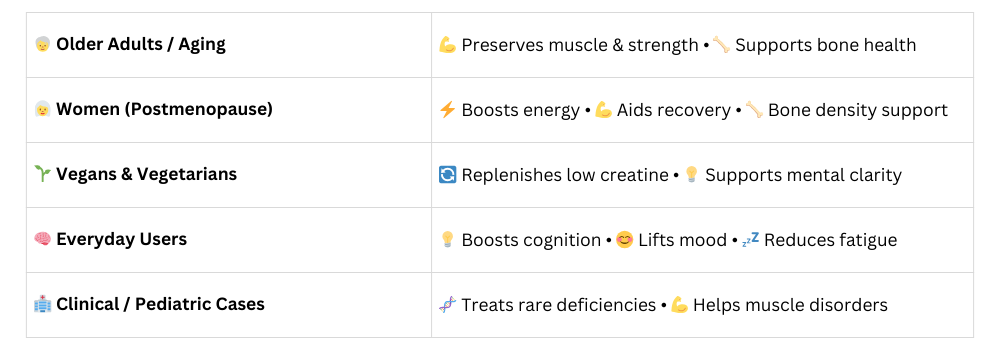When you hear “creatine,” you might picture hulking gym enthusiasts or chiseled bodybuilders downing tubs of powder. But guess what? Creatine is rapidly shedding that stereotype—and the research is revealing why it’s for everyone, not just fitness fanatics.
What Is Creatine—and Why It’s Making Waves
Creatine is a naturally occurring compound produced in our liver, kidneys, and pancreas from amino acids (arginine, glycine, methionine). While most of it resides in muscle tissue, a notable fraction supports brain and metabolic functions.
Traditionally, it’s been prized for helping regenerate ATP—the energy currency for intense, short bursts like lifting or sprinting. But the emerging narrative is that its benefits stretch far beyond the squat rack.

1. Brain Boost: Smarter, Sharper, Stronger
Creatine is flexing its neuroprotective muscles. It enhances brain energy metabolism, supports cognitive performance under stress, and may safeguard against cellular damage.
Notably, the UK’s expert panel (UKNHCC) acknowledged that just 3 g/day of creatine may improve cognitive function in healthy adults. Meta-analyses have also found positive effects on memory—particularly in older individuals.

2. Healthy Aging & Beyond Muscle Mass
Aging brings challenges like muscle loss, bone weakening, and sluggish metabolism. Creatine supplementation, especially when paired with resistance training, has shown promise in mitigating these—preserving lean mass and strength in seniors.
For postmenopausal women, creatine may also help maintain bone density. Beyond bone and muscle, its energy-supporting role may combat fatigue and improve day‑to‑day function.

3. Everyday Wellness: Mood, Sleep, and Longevity
Creatine’s benefits are not just physical. Research suggests mood-enhancing effects, reduced mental fatigue, better sleep, and even potential protection against neurodegeneration.
Business Insider highlighted creatine’s potential in supporting heart health, mood, inflammation reduction, and brain resilience in aging.
4. Inclusivity: Vegans, Women, and Diverse Needs
If you’re vegan or vegetarian—creatine may be an overlooked nutrient for you. Plant-based diets lack it, meaning supplementation can bring you back up to par.
Women, too, stand to benefit. They naturally produce 20%–30% less creatine than men, and emerging data points to perks during menstrual cycles and menopause that go beyond what’s been traditionally studied in men.
5. Clinical Power: From Rare Disorders to Pediatric Applications
Creatine isn’t just a supplement—it’s a lifeline in rare genetic conditions like creatine synthesis deficiencies (AGAT, GAMT). Early intervention with oral creatine can significantly improve outcomes.
In pediatrics, the benefits extend further—to certain muscular and metabolic disorders, including Duchenne muscular dystrophy and even leukemia—where it remains safe and clinically effective.

Is Creatine Safe—And Easy to Take?
Yes. Creatine monohydrate, the gold standard form, is well-researched, safe, and cost-effective.
Typical daily doses are 3–5 g, with optional loading phases (20 g/day for one week). Potential side effects—water retention or mild digestive discomfort—are usually temporary and manageable.
However, individuals with kidney issues should consult a doctor before starting. And always select third‑party–tested supplements for purity.
Takeaway: More Than Muscle
Creatine is no longer confined to the weight room—it’s stepping into the broader wellness arena. Whether you want mental clarity, aging gracefully, better bone health, or to address a medical condition, creatine offers versatile benefits.
So the next time someone brings up creatine powder, confidently say: “It’s not just for gym bros—it’s for health, longevity, and everyday life.”


0 comments